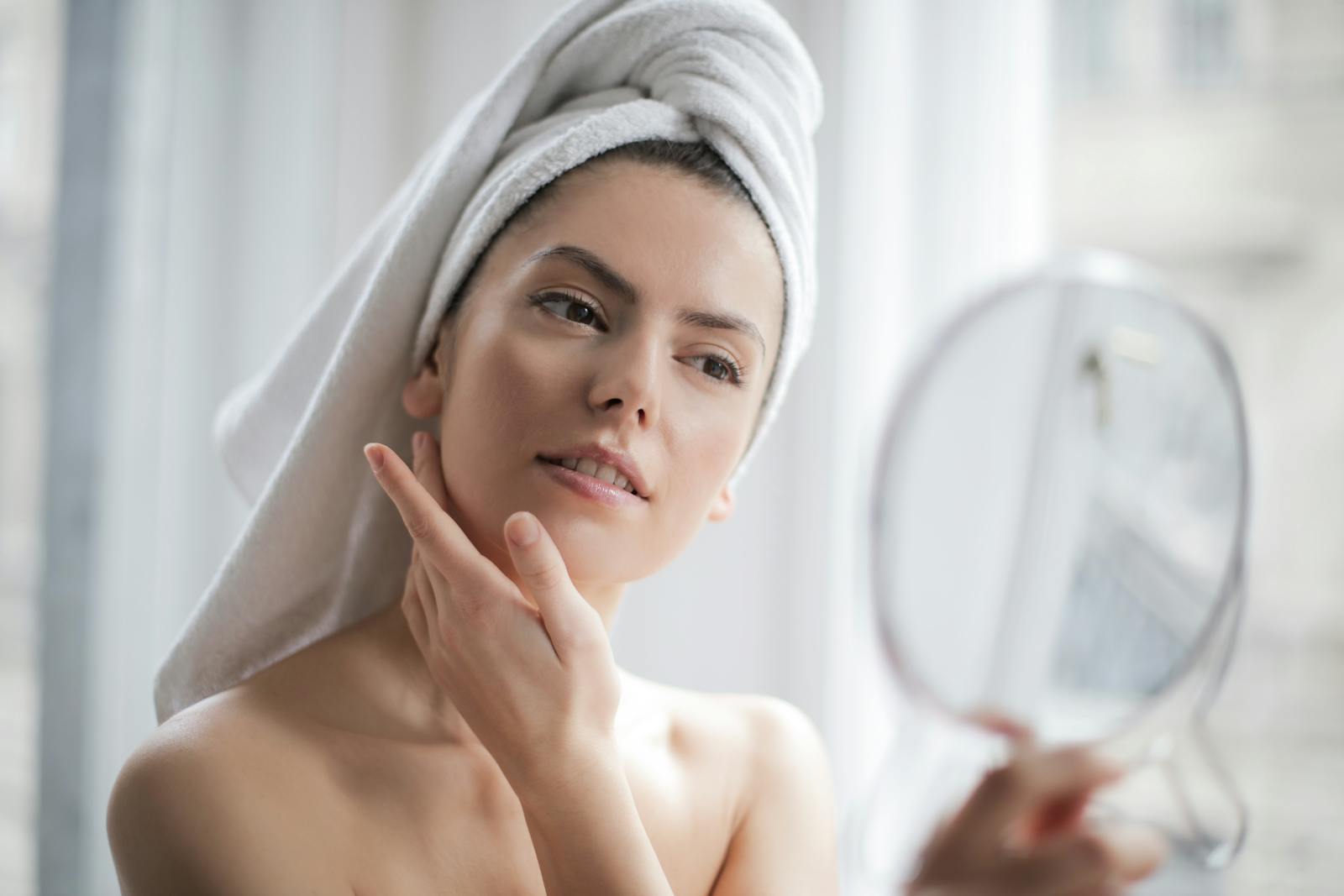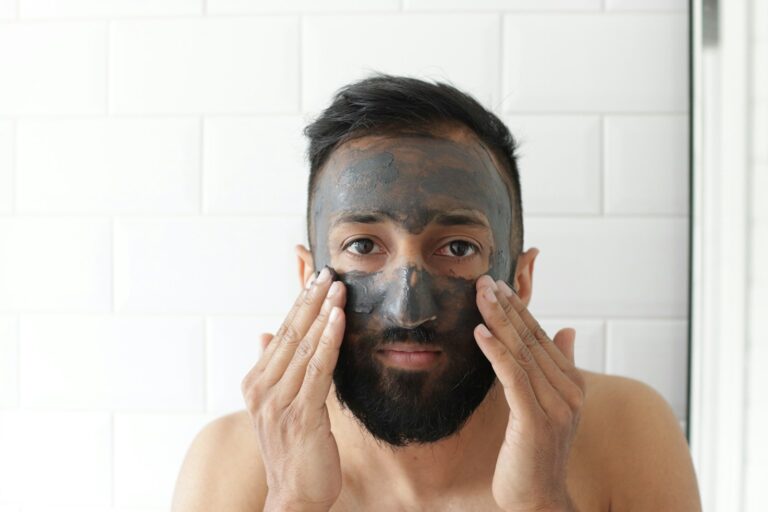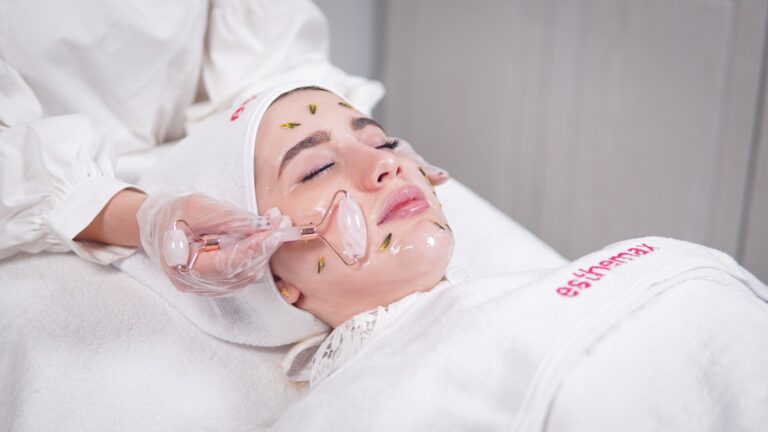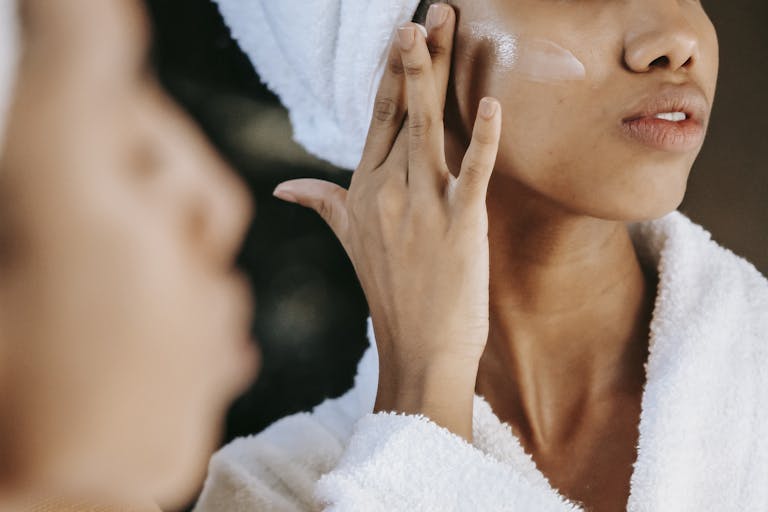Habits that may seem harmless can actually worsen your oily skin. You might be unknowingly exacerbating your skin issues through poor diet choices, inadequate cleansing routines, or even frequent touching of your face. Understanding these daily practices is imperative to managing oil production and achieving healthier skin. In this post, we’ll explore the simple adjustments you can make to your routine that will help in keeping your complexion balanced and radiant.
The “Less is More” Misconception
The idea that less is often more can lead to misguided habits when managing oily skin. While simplifying your skincare routine may sound appealing, overlooking crucial products can exacerbate the very issue you’re trying to resolve. Many who struggle with oily skin might think that using fewer products will help reduce oiliness, but this frequently results in more oils being produced as your skin attempts to compensate for the lack of moisture and nourishment. Finding the right balance can be challenging, yet crucial for achieving optimal skin health.
In a bid to minimize oil, some individuals may cut out crucial components of their regimen, like exfoliants, toners, or moisturizers, unaware that these are instrumental in regulating oil levels and maintaining skin health. Understanding that a minimalistic approach can lead to a cycle where your skin becomes dehydrated and subsequently produces more oil is vital. The right mix of products tailored for oily skin is not merely beneficial; it’s often necessary for achieving a balanced and clear complexion.
Over-Exfoliation: The Double-Edged Sword
Over-exfoliating is one of the most common missteps in the quest for clearer skin. You might believe that using multiple exfoliating products, such as scrubs and chemical exfoliants, will help to rid your skin of excess oil and prevent breakouts. However, this practice can actually strip your skin of its natural oils, leading to irritation and increased oil production as your skin compensates for the loss. Aim for gentle exfoliation once or twice a week, focusing on products that suit your skin type.
When you over-exfoliate, you can disrupt your skin’s natural barrier, resulting in redness, sensitivity, and an overactive sebaceous gland. This reaction can actually make your skin more susceptible to acne. Instead of clearer skin, you may find yourself facing increased breakouts and an imbalance that makes your skin appear more oily. Learning to listen to your skin and adjusting your exfoliation routine can help maintain its protective barrier and keep oil production in check.
Skipping Moisturizer: A Counterintuitive Approach
Many people with oily skin often believe that forgoing moisturizer can help reduce grease. This assumption can lead to a cycle of dryness and oiliness. Your skin needs hydration, even if it produces excess oil. Skipping moisturizer can trigger your skin to overcompensate, resulting in an increase in oil production. Utilizing a lightweight, oil-free moisturizer actually helps maintain balance and can leave your skin feeling refreshed without adding to the shine.
For those who think moisture should be avoided due to the fear of oil, it’s crucial to choose the right formula. Opt for gel-based or non-comedogenic options that hydrate without clogging pores. Incorporating this crucial step into your routine helps regulate oil production and promotes a healthier skin barrier, ultimately leading to a more balanced and less oily complexion.
The Role of Diet in Skin Oil Production
Your diet plays a pivotal role in how much oil your skin produces. Foods that spike insulin and trigger hormonal changes can lead to an increase in oil production, exacerbating oily skin and conditions like acne. For instance, diets high in refined carbohydrates and sugars can create a cascade of hormonal responses, promoting oiliness. By understanding the impact of your food choices, you can take tangible steps towards achieving a more balanced complexion.
Sugar and Acne: The Sweet Trap
Indulging in sugary snacks and beverages might give you an instant energy boost, but it can also put you on a slippery slope towards exacerbated oily skin. Sugar has been shown to increase the production of insulin, which in turn stimulates sebaceous glands to produce more oil. A study published in the American Journal of Clinical Nutrition noted a significant correlation between high glycemic index foods and acne prevalence. For those with oily skin, this sweet trap can lead to breakouts, clogged pores, and an overall compromised skin barrier.
Dairy and Hormones: An Oily Connection
Your love for dairy products might be contributing to your oily skin. Dairy has been linked to increased levels of certain hormones like insulin and insulin-like growth factor 1 (IGF-1), both of which can elevate oil production. Research indicates that individuals consuming milk, particularly skim milk, have a higher incidence of acne compared to those who opt for alternative sources. This is primarily because dairy can stimulate hormone activity that exacerbates your skin’s oiliness.
Furthermore, the hormonal fluctuations resulting from dairy consumption can sometimes mirror the natural hormonal changes you experience during your menstrual cycle, leading to cyclical breakouts and excess oil production. Understanding this connection allows you to assess your dairy intake and its potential impact on your skin. You might find that reducing or eliminating dairy from your diet leads to improvements in the overall texture and appearance of your skin.
The Impact of Stress on Skin Health
Stress can significantly affect your skin health, particularly if you struggle with oily skin. The relationship between stress and skin conditions is well-established, with various studies showing that increased stress levels can exacerbate skin issues, including acne and excessive oiliness. When your body is under stress, it produces higher levels of the hormone cortisol, leading to an overproduction of oil in the skin’s sebaceous glands. As a result, this increase in oil can clog pores, trigger breakouts, and ultimately worsen the shine that you’re trying to manage.
Cortisol and Oil Production: The Chemical Cascade
The connection between cortisol and your skin’s oil production is part of a broader chemical cascade. When you encounter stressors, whether they’re work-related deadlines or personal challenges, your body responds by releasing cortisol to help you cope. Unfortunately, elevated cortisol levels send signals to your oil glands, stimulating them to produce excess sebum. In fact, research reveals that high cortisol levels can lead to a significant increase in sebum production, exacerbating oily skin issues for many individuals.
Stress-Induced Habits That Worsen Oily Skin
In addition to the chemical reactions triggered by stress, your lifestyle choices during stressful periods can exacerbate oily skin. Many people tend to adopt unhealthy coping mechanisms under pressure, such as neglecting skincare routines or resorting to poor dietary choices that can inflame the skin. Stress may also lead to increased touching of the face, which transfers oils and bacteria from your hands to your skin, heightening the risk of breakouts.
Furthermore, skipping your daily skincare regimen becomes common as stress levels rise, leaving your skin vulnerable to the consequences. You might find yourself reaching for sugary snacks or caffeinated drinks to keep your energy up, which not only impacts your overall health but can also cause your skin to react negatively. Staying mindful of your habits during stressful times and prioritizing consistent skincare can mitigate the negative effects on your oily skin.
The Myth of Hot Water in Skincare Routines
The Truth About Cleansing: Temperature Matters
Using hot water when washing your face might feel comforting, but it can inadvertently worsen oily skin. High temperatures strip away your skin’s natural oils quickly, causing your skin to react by producing even more oil. This leads to a vicious cycle of over-cleansing and excess oil production. You might think that drying out your skin will help control oil, but the truth is that it can create a greater imbalance.
| Water Temperature | Effects on Oily Skin |
|---|---|
| Hot Water | Strips natural oils, increases oil production |
| Warm Water | Gentle cleansing, helps unclog pores without irritation |
Steam Vs. Cold: Finding the Right Balance
Debunking the myth that steam treatments are universally beneficial for oily skin is important. While steam may help to open up pores and facilitate the removal of impurities, too much exposure can lead to irritation and exacerbate oiliness. A steaming session that lasts too long or is done too frequently could result in the opposite of a desirable outcome, leaving your skin looking more shiny and oily.
On the flip side, cold water can be invigorating and may help to temporarily tighten the pores. However, using cold water alone might not effectively cleanse your skin of the excess oil and dirt that tend to accumulate. Finding a harmonious balance between warm and cool water—where you can start with a gentle cleanse using lukewarm water and finish with a splash of cold—is often the best approach to maintain harmony in your oily skin routine.
Makeup Choices That Add to Oily Skin Troubles
Heavy Foundations and Their Fallout
Choosing the wrong type of foundation can exacerbate your oily skin issues massively. Heavy, cream-based foundations may provide good coverage but can also block your pores, leading to additional oil production and potential breakouts. Products that are rich in oils or waxes often end up sliding off your face as the day goes on, making you look greasy instead of fresh. This can also lead you into a vicious cycle of layering more product to combat shine, which only worsens the situation.
To avoid this problem, opt for lightweight, matte-finish foundations that absorb excess oil and provide breathable coverage. Foundations containing salicylic acid can help keep your skin clear while maintaining a polished look. Additionally, avoiding heavy powders that provide a cakey finish will help keep your makeup from settling into fine lines and pores throughout the day.
The Importance of Non-Comedogenic Products
When deciding on makeup for oily skin, the term “non-comedogenic” should be at the forefront of your mind. This means that the product is specifically formulated to avoid clogging pores, reducing the chances of acne and, ultimately, contributing to a less oily appearance. Many popular brands now offer extensive lines of non-comedogenic cosmetics that cater to various skin types, making it easier for you to find suitable options.
For example, look for foundations, primers, and concealers labeled as non-comedogenic, as these formulations typically avoid heavy oils and waxes. Brands such as Clinique and Neutrogena often provide products that are dermatologist-tested and proven to be safe for oily and acne-prone skin. Incorporating these types of products into your makeup routine can significantly impact your skin’s overall health and appearance, leading to less shine and fewer breakouts.
To Wrap Up
As a reminder, understanding the daily habits that can exacerbate oily skin is necessary for managing your complexion effectively. You should be mindful of the products you use, as heavy creams and certain makeup items can clog pores and lead to increased oil production. It’s also important to maintain a consistent cleansing routine that suits your skin type, as neglecting this can lead to a buildup of excess oil and impurities. Additionally, avoiding touching your face and being conscious of environmental factors, such as pollution, can significantly impact your skin’s overall health.
By making small adjustments to your daily routine, you can take significant steps towards achieving a more balanced and healthy complexion. Choosing lightweight, non-comedogenic products, along with regular exfoliation, can help keep excess oil at bay. Staying hydrated and managing your stress levels are also key components in obtaining control over oily skin. With dedication and the right approach, you can effectively minimize oiliness and enhance your skin’s appearance.







